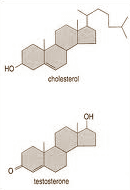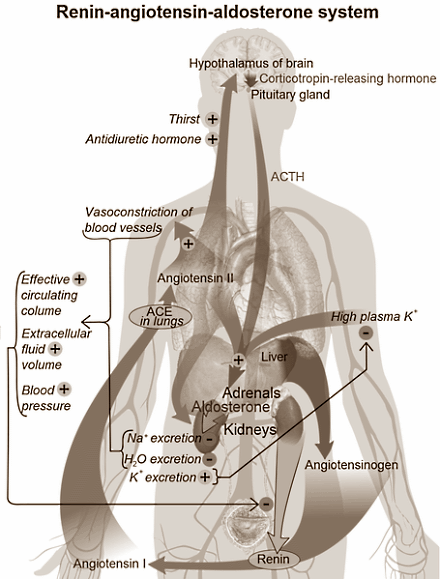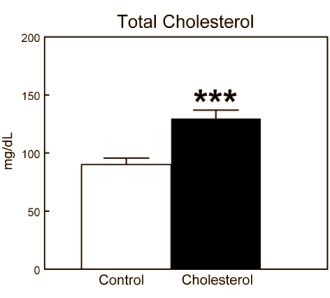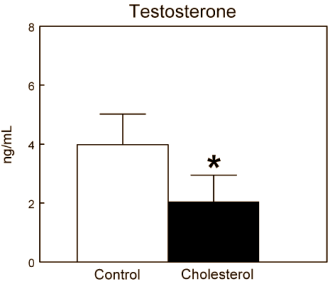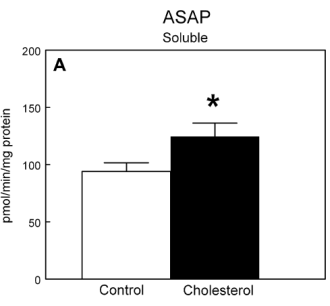|
Definition: "An ergogenic aid is any substance or phenomenon that enhances performance "
|
|
||||||||
21.06.2011 |
|
|
Too much cholesterol lowers testosterone level: animal study
The indications that a cholesterol-rich diet is unhealthy are not very strong. Every egg yolk the average person eats raises their chance of a heart attack by 2 percent, according to epidemiological studies. [Am J Clin Nutr. 2001 May;73(5):885-91.] That's almost nothing. Other epidemiological studies have also found a higher risk of cancer among people who eat large amounts of egg yolk – the most important source of cholesterol in our diet – but the relationships were probably the result of pollution and not cholesterol. [Am J Clin Nutr. 2004 Jul;80(1):58-63.]
There is, however, a condition doctors call hypercholesterolemia. In most active and healthy people there is no clear relationship between cholesterol intake via food and the concentration of cholesterol in the blood. Of course some people are thriftier with their cholesterol than others, and they are more likely to develop hypercholesterolemia if they eat too much cholesterol.
Hypercholesterolemia is not only a health risk, but animal studies have shown that it also lowers testosterone levels. [Endocr Res. 2001 Feb-May; 27(1-2): 109-17.] Mice with a raised cholesterol level produce less testosterone if they are given hCG injections. [J Nanosci Nanotechnol. 2005 Aug; 5(8): 1273-6.]
By the way, there are human studies in which strength athletes produce more testosterone the more cholesterol they consume. Apparently they had a healthy cholesterol level. [J Appl Physiol. 1997 Jan;82(1):49-54.]
Researchers at the University of Jaen in Spain will soon publish the results of an animal study, which may reveal something of the mechanism through which hypercholesterolemia lowers testosterone levels. The Spaniards believe there is a link with the renin-angiotensin system [RAS].
The RAS is intended to mitigate the effects of low blood pressure. When blood pressure is low, this system makes sure that small amounts of the active hormone angiotensin I are converted into the more active angiotensin II. Angiotensin gets the blood vessels to contract so that blood pressure rises.
In the testes the enzyme aspartylaminopeptidase [ASAP] converts angiotensin II into angiotensin III. The enzymes aminopeptidase-N [APN] and aminopeptidase-B [APB] convert angiotensin III into angiotensin IV.
The figure above shows that the ASAP activity rose. The same happened in comparable amounts to the activity of APN and APB.
The Spaniards are not totally sure what's going on. You could speculate that there is a reduced blood supply to the testosterone producing Leydig cells in the testes, but the Spaniards remain cautious. They also suggest that the effects on the RAS might not be the cause of the drop in testosterone, but the result.
The results of the Spanish experiment don't necessarily apply to humans, but the take-home message is clear for athletes seeking to optimise their natural testosterone synthesis: there's nothing wrong with dietary cholesterol as long as you have a healthy cholesterol level. If this is the case, cholesterol consumed in food probably does indeed raise your testosterone level. But if your cholesterol level is already too high, the kite won't fly.
Source:
|
|

